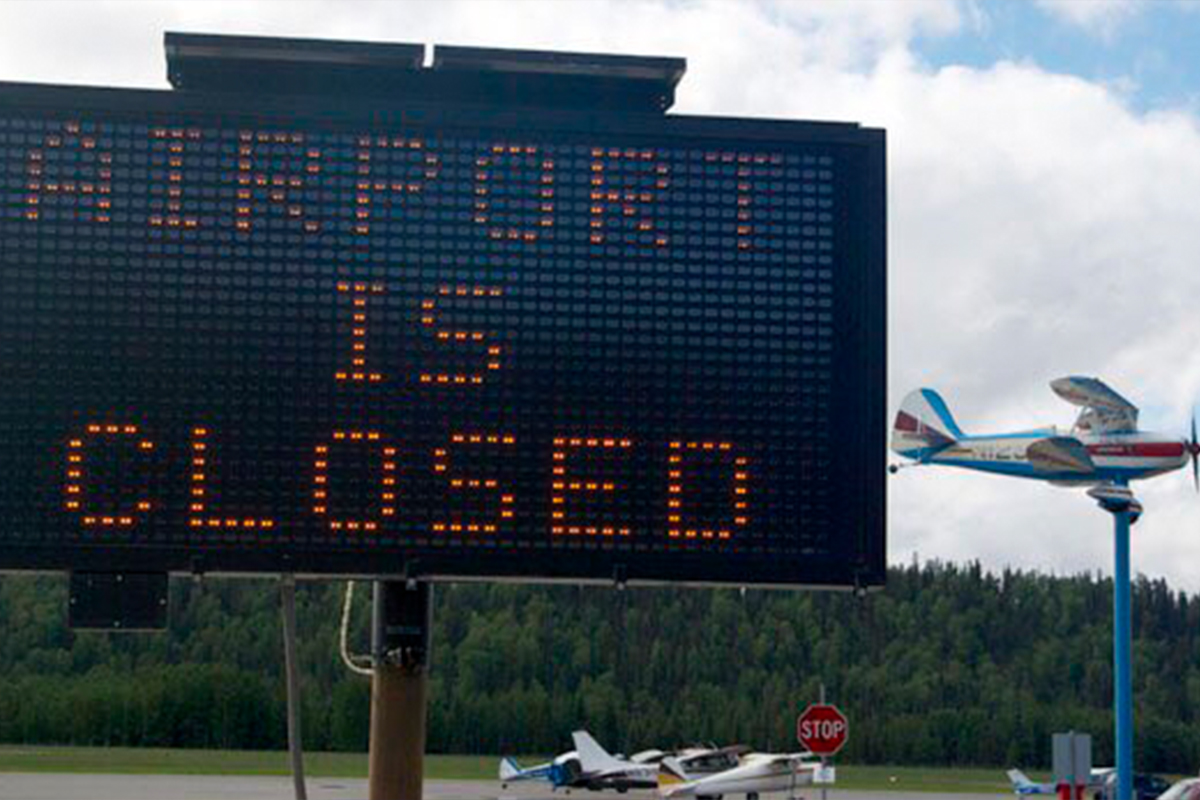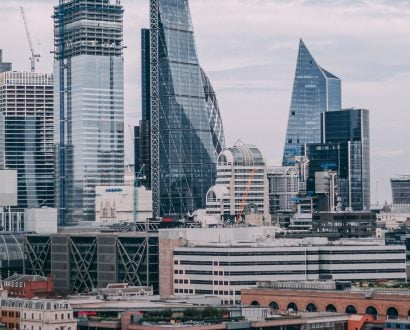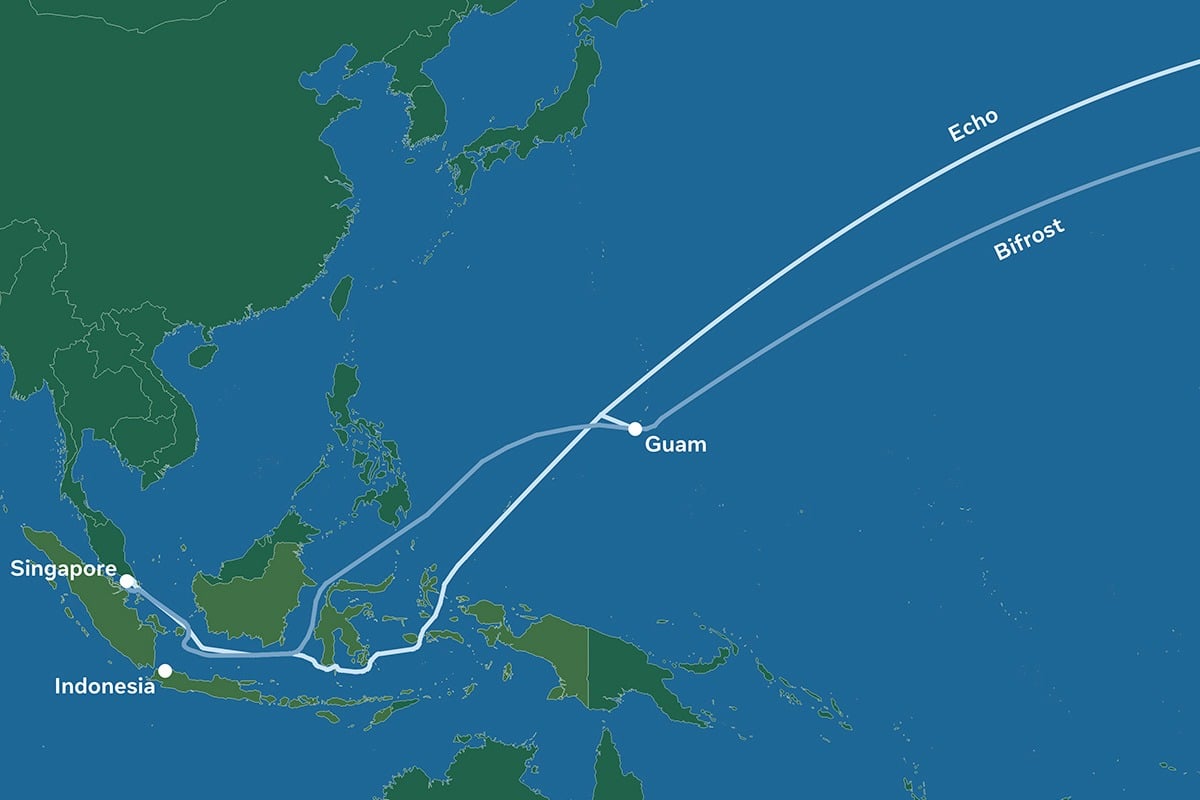The daily global number of deaths from COVID-19 is dropping; however the number of confirmed cases is still rising in many parts of the world, possibly due to increased testing, and there are still many countries with their borders closed to international travellers.
More than one million people officially have died from COVID-19, although the true figure is likely to be a lot higher. However, 96% of closed cases of COVID-19 have recovered, according to WorldOMeters.
New Zealand Foreign Minister Winston Peters said on Monday a trans-Tasman travel bubble could “open up next week”.
“If the Australians could give us a guarantee about their protocols and send safety to our country, not danger, we could open next week – but we need that guarantee,” he said.
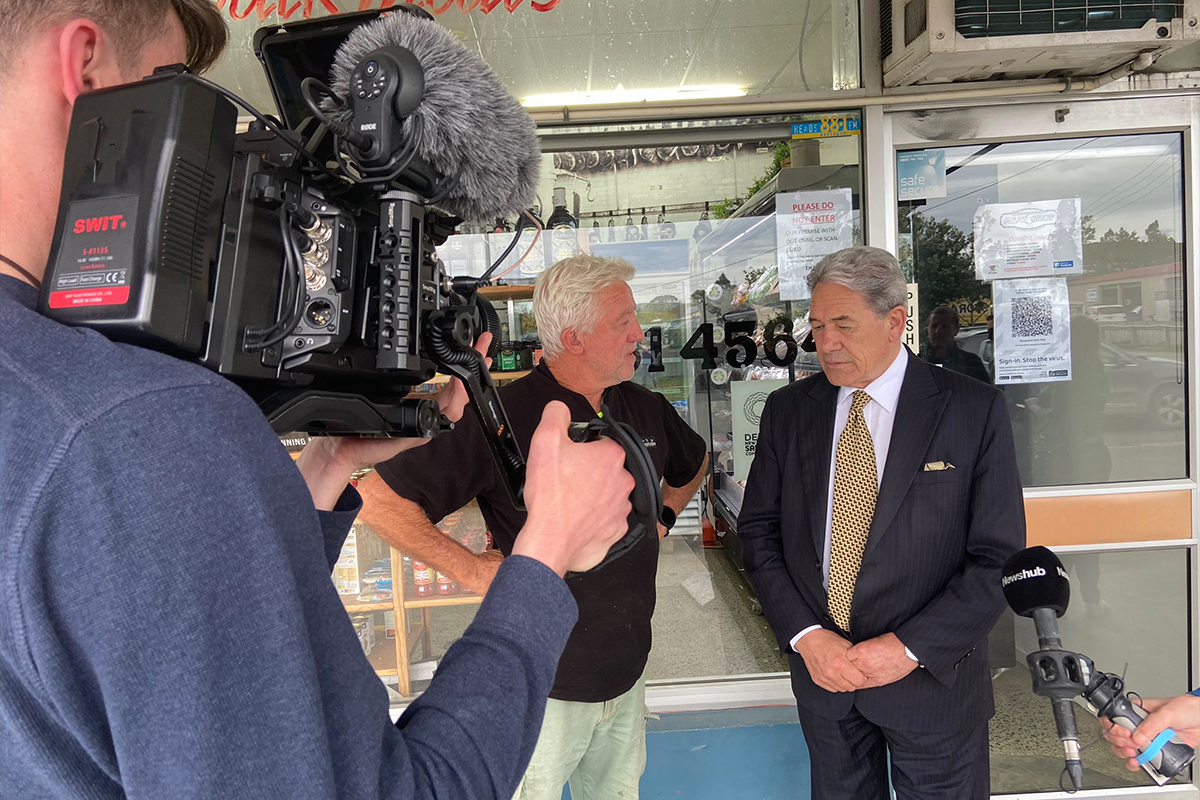
Foreign travellers are not allowed to enter Australia, unless they are Australian citizens or permanent residents and immediate family returning from abroad. Australia, which has had 882 deaths, is quarantining all returning residents in hotels for two weeks.
In New Zealand, all travellers, except for returning New Zealanders, are denied entry. All New Zealanders arriving are tested for COVID-19, and are subject to 14 days of government-supervised quarantine or self-isolation. Before entering the community, everyone must test negative for COVID-19. New Zealand has had 25 deaths.
The Pacific Islands have largely remained free of COVID-19 due to being closed to all visitors.

- Kiribati denies entry to any traveller who have been in or transited countries with confirmed local transmission within 14 days immediately prior to entering Kiribati.
- In Samoa, all international travel to and from Samoa has been banned until further notice. International cruise ships and yachts are not allowed to enter Samoa.
- In the Solomon Islands, scheduled international flights are suspended until 24 October. Only Solomon Islands citizens and residents are permitted to enter, and they must complete a Public Health Declaration, and may be required to undergo mandatory quarantine for 14 days.
- Tonga‘s borders have closed to all foreign nationals, and a state of emergency remains in place until 12 March 2021. All ports of entry to Vanuatu are closed until further notice.
- Vanuatu nationals arriving on repatriation flights are subject to medical screening and quarantine for 14 days.
- International flights also suspended in Fiji with only returning nationals permitted to enter. They must undergo 14 days of mandatory quarantine.
Many parts of Asia have been badly hit by COVID-19.

- Restrictions on travelling to and from Azerbaijan by air or land are in place until 30 September. To obtain permission to enter, foreigners – and Azerbaijani citizens who have visited countries affected by COVID-19 in the last 14 days – must submit a medical certificate after being tested for COVID-19. All arrivals will undergo screening for symptoms, and if suspected of exposure, will be evaluated and sent to a designated quarantine facility for 14 days.
- International flights to Bhutan are suspended. Foreign nationals need to apply for permission to enter Bhutan. All travellers or returning Bhutanese nationals will be quarantined for 21 days upon arrival.
- International flights to India are suspended until 30 September. The Indian Bureau of Immigration website outlines categories of foreign nationals who are now eligible to travel to India. Anyone exempt from the entry ban is subject to medical screening and quarantine for 14 days upon arrival. Everyone must provide contact details, and will be asked to download the Arogya Setu app.
- Foreign nationals are banned from entering Indonesia. If you meet the criteria for entry, you must present a negative COVID-19 PCR test result that is less than 7 days old. If you do not have a negative COVID-19 certificate, you will undergo a swab test and quarantine at your expense until the results are received (this could take up to seven days). You will also need to provide a personal statement that confirms you are ready to be quarantined for 14 days if required.
- Commercial flights to Kyrgyzstan are suspended. Foreign nationals are banned from entering Kyrgyzstan, except for immediate family members of Kyrgyz citizens who must show documentation to prove the relationship. Anyone entering who shows symptoms of COVID-19 will be taken to medical facilities. Arrivals are subject to medical screening and could be asked to self-isolate at home.
- International flights to Laos are suspended until at least 30 September, and borders are closed to foreign travellers. Foreign nationals who are granted permission to enter must apply for a visa. Arrivals will undergo mandatory health screenings and 14 days of quarantine at their own expense. Passengers must have a medical certificate with a negative COVID-19 test result issued no more than 72 hours before departure, and complete a health declaration form.
- Foreign nationals are not allowed to enter Malaysia until 31 December, and there are limited exceptions to the entry ban. Entry is prohibited except for Malaysian nationals and foreign nationals holding certain categories of residency and employment passes. Arrivals are subject to medical screening, quarantine for 14 days at your own cost in a designated facility, and must download the MySejahtera app.
- All international flights and rail transport to Mongolia are suspended until at least 31 October. International arrivals are subject to quarantine for 21 days at designated facilities. The Mongolian government may allow foreign nationals to enter if they meet certain criteria (a valid long-stay visa or permanent residency) and undertake the required quarantine measures on arrival.
- All international flights to Myanmar are suspended until 31 October.
- Most foreign travellers are not allowed to enter Nepal. Nepalis, international passengers from certain employment categories, and their dependants are allowed to enter Nepal. Eligible passengers must show evidence of a negative COVID-19 test result taken within 72 hours, fill out a Passengers Locator Card and may be required to self-quarantine for 14 days.
- All international air and train routes have been temporarily suspended in North Korea since 31 January. Passengers travelling for tourism purposes are not allowed to enter. Travellers visiting for business or official duty will be quarantined upon arrival.
- International travel to the Philippines is banned. Filipino nationals, spouses or children of nationals, and residents returning from abroad may be subject to quarantine for a maximum of 14 days upon arrival or required to undergo COVID-19 testing. Foreign nationals with existing long-term visas are allowed to enter the Philippines, subject to certain conditions outlined here in this travel alert.
- Commercial flights to Sri Lanka are suspended indefinitely. Any returning residents must quarantine for 14 days upon arrival. Sri Lankan nationals and residents returning from overseas will be quarantined for 14 days upon arrival, followed by 14 days of self-isolation at home. Arrivals will undergo temperature checks at the airport and must now take a PCR test.
- Commercial flights are suspended to Tajikistan until further notice. Land borders are closed, and foreign nationals are banned from entering the country. Returning residents are required to quarantine for 14 days upon arrival.
- International flights are suspended to Turkmenistan until at least 1 October. Repatriation flights are permitted for nationals of Turkmenistan, accredited diplomats, permanently registered foreigners and some employees of international companies and organisations. Passengers must have a negative medical certificate for a COVID-19 test result issued no more than 72 hours before departure, and will be subject to testing on arrival and self-isolation for 14 days.
- Uzbekistan is officially reopening its borders for tourism and resuming international flights from 1 October. It shut its borders on 15 March. Countries that are allowed to enter are classified under a traffic light system that is determined by current infection rates and will dictate the specific entry requirements for the tourist. Travellers from the yellow or red zones must obtain a negative test result prior to arrival, and may be subject to further testing and self-isolation for 14 days.
- Vietnam resumed international commercial flights to six destinations: Guangzhou, Taiwan, Seoul, Tokyo, Phnom Penh, and Vientiane on 22 September. Entry is only permitted for diplomats, experts, investors and their family members, and Vietnamese nationals returning home. Inbound travellers must submit an online health declaration form, and undergo medical checks upon arrival. Quarantine lasts a minimum of 14 days, and may be extended longer if you test positive at any point.
The Middle East has struggled to contain the virus.

- In Bahrain, only Bahraini citizens, residents and passengers with Prior Permission Granted are allowed entry. Arrivals are subject to a COVID-19 test on arrival. A second test must be taken 10 days after arrival.
- In Israel, non-resident foreign nationals will not be permitted to enter unless they meet limited exceptions and obtain approval for entry from the Consulate of Israel in their country of origin. Eligible travellers must fill out an entry form, and travellers on a ‘Green list’ will not be required to self-isolate, unless they have visited a country on Israel’s ‘Red list’ in the past 14 days.
- Entry remains restricted in Saudi Arabia. From 15 September, some categories of expatriates holding valid visas (exit/entry, business, residence/Iqama and visit) are allowed to enter. Passengers must show proof of a negative COVID-19 PCR test taken within 48 hours of departure.
- Qatar has restricted entry, except for nationals and permanent residents of Qatar who must apply to return through the Qatar Portal website. Travellers from low-risk countries are required to take a COVID-19 test on arrival and undergo home quarantine for seven days, when they must take a second test, and quarantine will end if results are negative. Arrivals from countries that aren’t on the safe list must obtain a ‘virus-free certificate’ from an accredited COVID-19 facility no more than 48 hours before departure, and quarantine upon arrival.
- International commercial flights are suspended in Oman until at least 1 October. Until then, nationals and residents returning to Oman on chartered flights (after obtaining permission from the Ministry of Foreign Affairs) are subject to 14 days quarantine at home or at a hotel at their own cost, depending on citizenship or residency. All foreign national residents must have health insurance valid for the full duration of their trip.
Central America has being hit hard by COVID-19.
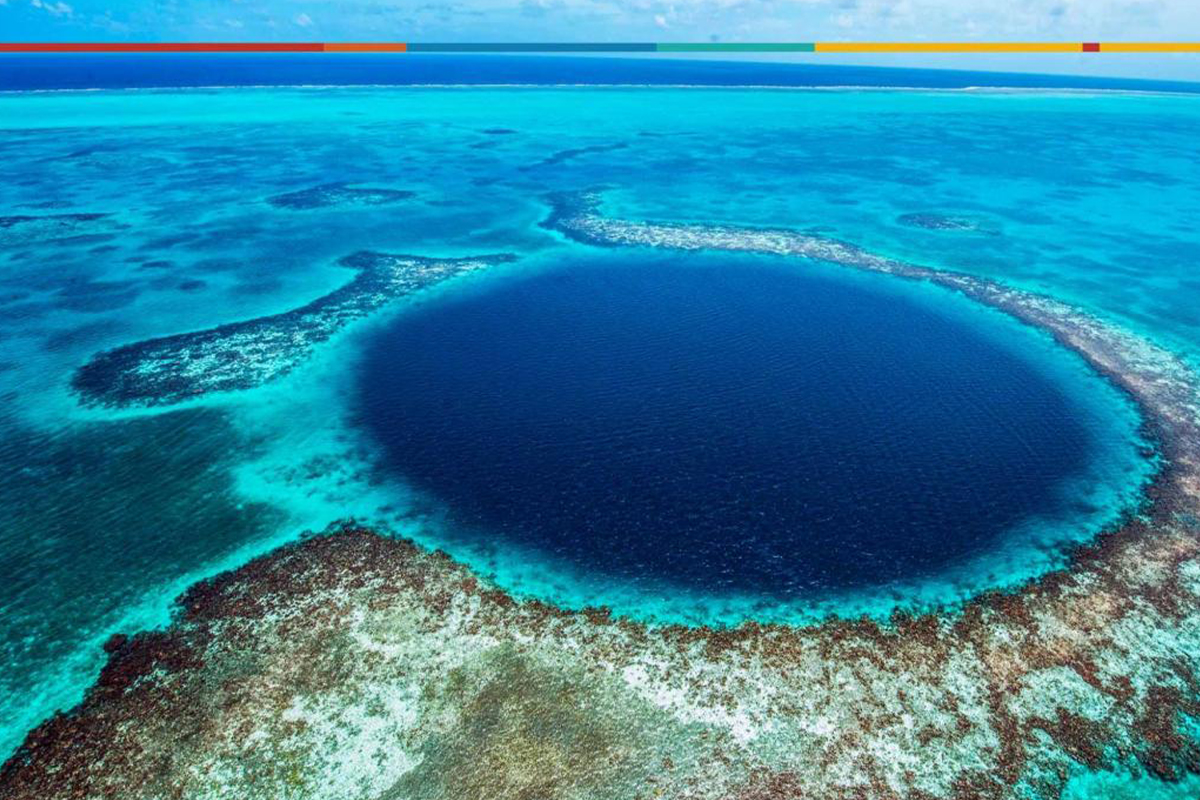
- Belize‘s Philip Goldson International airport will reopen from 1 October. Passengers must download the Belize Health app and obtain a negative PCR COVID-19 test result 72 hours before departure.
- Commercial flights and entry into Panama for tourism is banned until 12 October. Only nationals and residents of Panama can enter with a valid residency document and a medical certificate with a negative PCR or antigen test result for COVID-19 issued no more than 96 hours before departure. Arrivals must self-isolate for 14 days at home, and at the airport, you will be asked to sign a health declaration, and may require quarantine in a government sanctioned facility.
North America has been hit hardest by the coronavirus pandemic, with the US recording almost 210,000 deaths due to COVID-19.
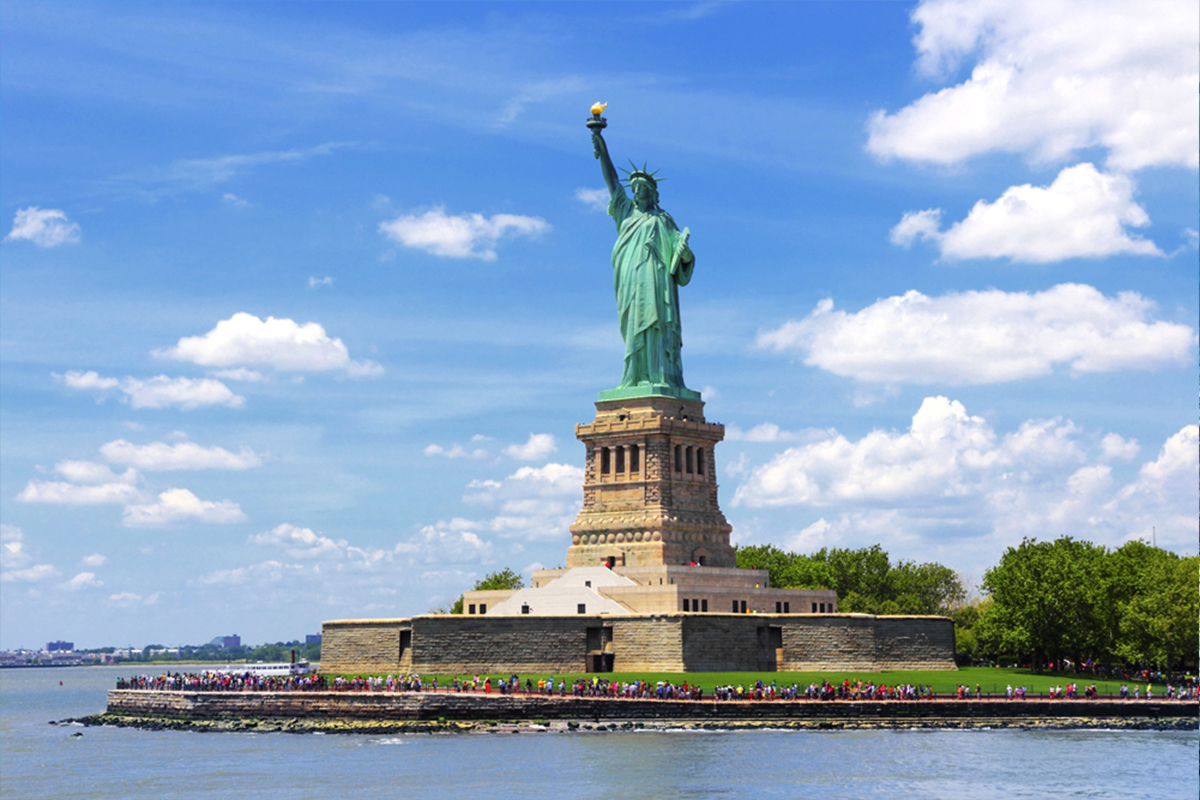
- Most foreign nationals are banned from entering Canada. Exemptions include Canadian citizens, permanent residents or their immediate families, temporary foreign workers and some international students. If you’re a foreign national (not a Canadian citizen or a permanent resident of Canada), you won’t be able to enter if you have COVID-19 symptoms. Arrivals must provide contact information, undergo screening by a border official and quarantine or self-isolate for 14 days. The US/Canada border remains closed to non-essential travel until 21 October.
- In the US, people from China, Iran, the European Schengen area (Austria, Belgium, Czech Republic, Denmark, Estonia, Finland, France, Germany, Greece, Hungary, Iceland, Italy, Latvia, Liechtenstein, Lithuania, Luxembourg, Malta, Netherlands, Norway, Poland, Portugal, Slovakia, Slovenia, Spain, Sweden, Switzerland, Monaco, San Marino, Vatican City), the UK, the Republic of Ireland and Brazil are banned from entering. In addition, there are restrictions on who can enter or transit the US. Anyone permitted to enter will be screened upon arrival, and asked to self-quarantine for 14 days. The borders are closed with Canada and Mexico to all non-essential travel until 21 October.
South America has been particularly hard hit and most countries are taking no chances of COVID-19 re-entering their homeland.
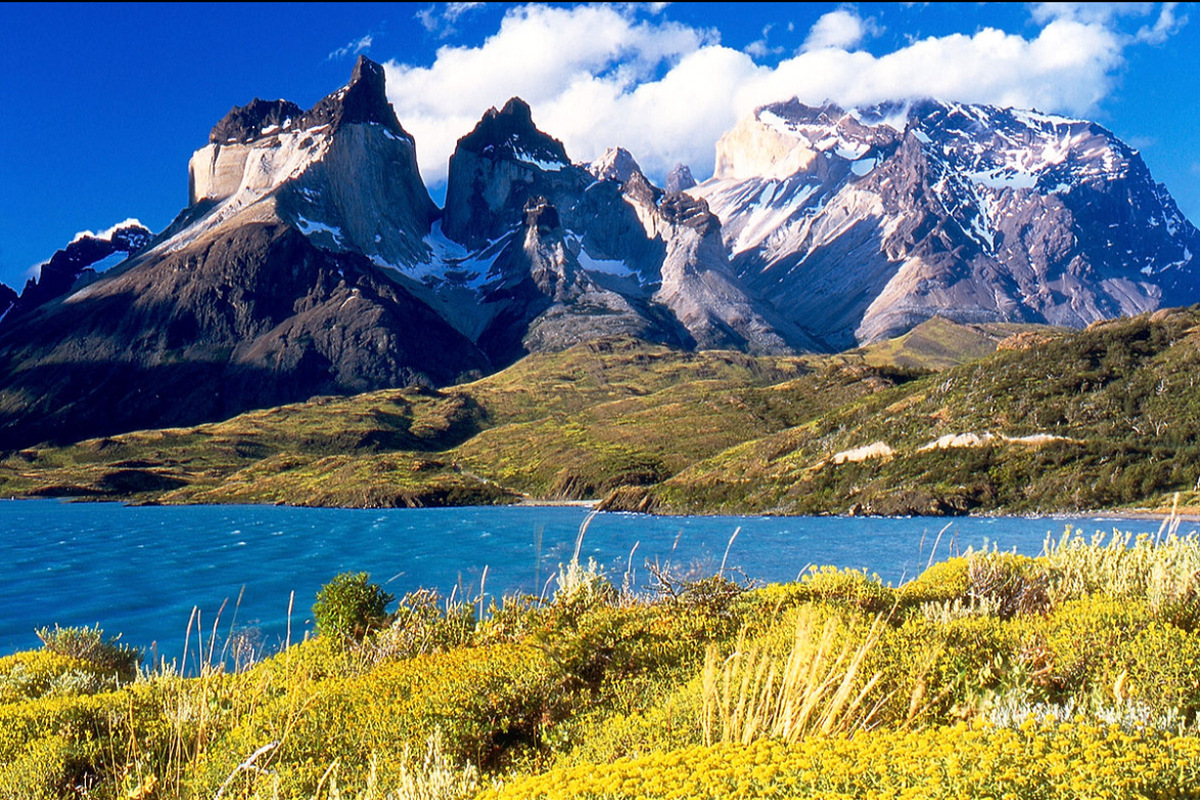
- Argentina‘s borders are closed to non-resident foreign travellers until at least 11 October. Returning nationals and residents of Argentina are subject to quarantine for 14 days, and passengers must now complete a Health Declaration form online within 48 hours prior to the trip.
- Foreign travellers are not allowed to enter Chile until at least 29 September. Nationals and residents of Chile returning from abroad must self-quarantine for 14 days upon arrival. Before departure, passengers must fill out an “Affidavit for Travellers to prevent Coronavirus diseases (COVID-19)”.
- Commercial flights to Guyana remain suspended, and there is a delay in reopening the international airport. All passengers must have a negative PCR COVID-19 certificate.
- In French Guiana, travel is severely restricted until further notice. Only travellers who can prove that entry is for urgent family/work reasons will be allowed to enter, and must fill in a travel certificate and provide proof. A negative test result for COVID-19 within 72 hours before departure for French Guiana is required for boarding a flight.
- Borders in Paraguay are closed to non-resident foreigners and commercial flights to Paraguay have been suspended until further notice. Eligible passengers must have a medical certificate with a negative COVID-19 RT-PCR test result (taken at most 72 hours before arrival at an authorised laboratory in the country of departure or of transit), and are subject to quarantine for 14 days on arrival. Returning residents and repatriated citizens must fill out a Travellers Health Card and show to the health authorities upon arrival.
- Commercial flights to Peru are suspended until 30 September. Borders are only open to repatriation flights for Peruvian nationals and residents. Returning residents are subject to 14 days quarantine upon arrival, and must fill out a Declaration of Traveller’s Health. International flights will resume and borders will open to a limited group of countries from 1 October.
- Borders in Uruguay remain closed to foreign nationals, and there are only limited exceptions to the entry ban. Eligible travellers must present a negative COVID-19 test taken no more than 72 hours before departure, and undergo seven days of mandatory self-isolation at a declared address. A second swab on day seven is required before completion of quarantine. All non-resident foreign travellers must show proof of health insurance that covers suspected or confirmed COVID-19.
- All borders in Suriname are closed to foreign travellers until 30 September. Returning residents will be placed in quarantine for 14 days upon arrival.
- Borders in Venezuela are closed and commercial flights have been suspended until 12 October. Entry is limited to Venezuelan citizens and foreign national residents, who will undergo COVID-19 testing and quarantine in designated state-run health facilities.
In the Caribbean, the coronavirus is still rife. In Trinidad and Tobago there were 24 new cases and one death from COVID-19 on Monday.
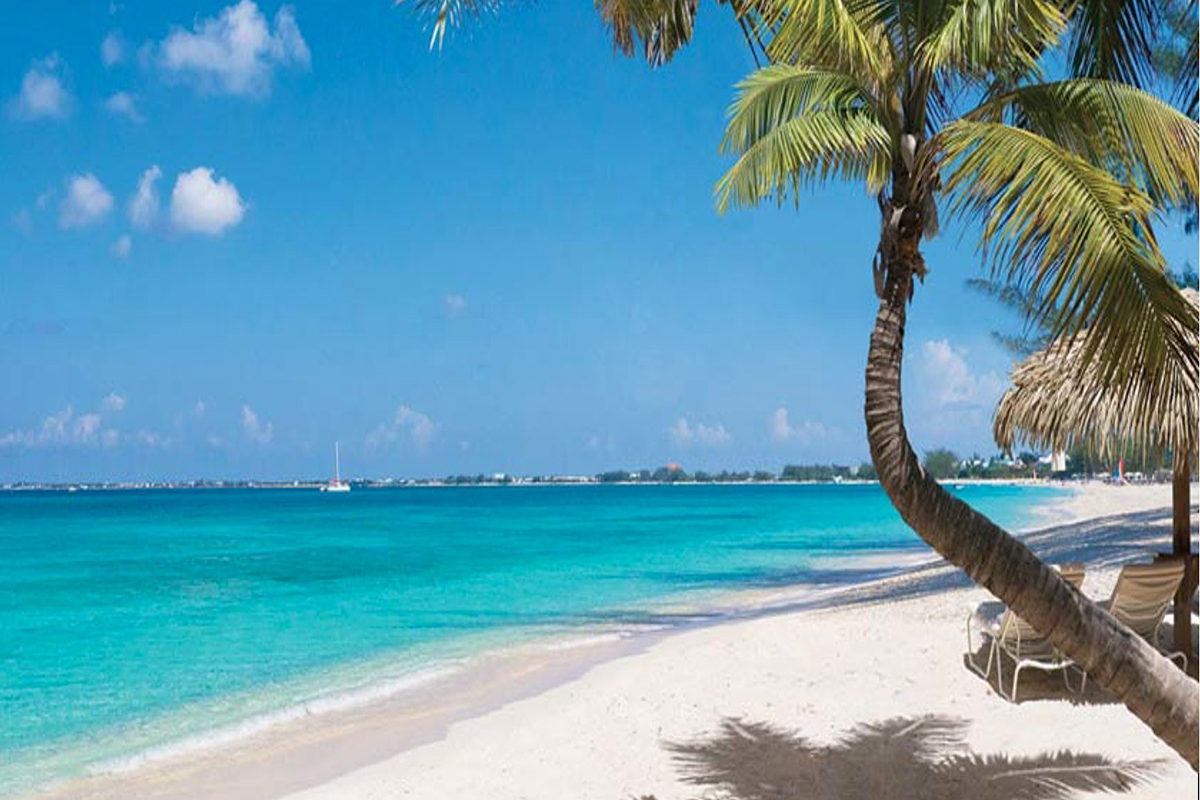
- Borders to the British Virgin Islands are only open for Permanent Residents and Naturalised Citizens. Anyone who wants to return needs to register online. Arrivals will be quarantined for 14 days.
- International flights and cruise ships are banned entry to the Cayman Islands until at least 1 October. Anyone who is permitted to enter must undergo quarantine for 14 days upon arrival in a government facility.
- Registration for travel to Montserrat must be completed via the Access Declaration Form at least 72 hours prior to departure. There are restrictions on who can enter, and enhanced health screenings in place. Eligible travellers are required to self-isolate for 14 days on arrival.
- St Kitts and Nevis has closed its borders to international travellers, except for returning nationals or residents. Borders may reopen in October. Upon arrival, all citizens must observe a minimum of 14 days mandatory quarantine.
- Airports in Trinidad and Tobago are closed until 30 September, unless flights are permitted by the Minister. Any arriving passengers must enter quarantine for 14 days.
In Europe, COVID-19 has returned with vengeance in France and the UK in particular, however the borders mostly remain open.
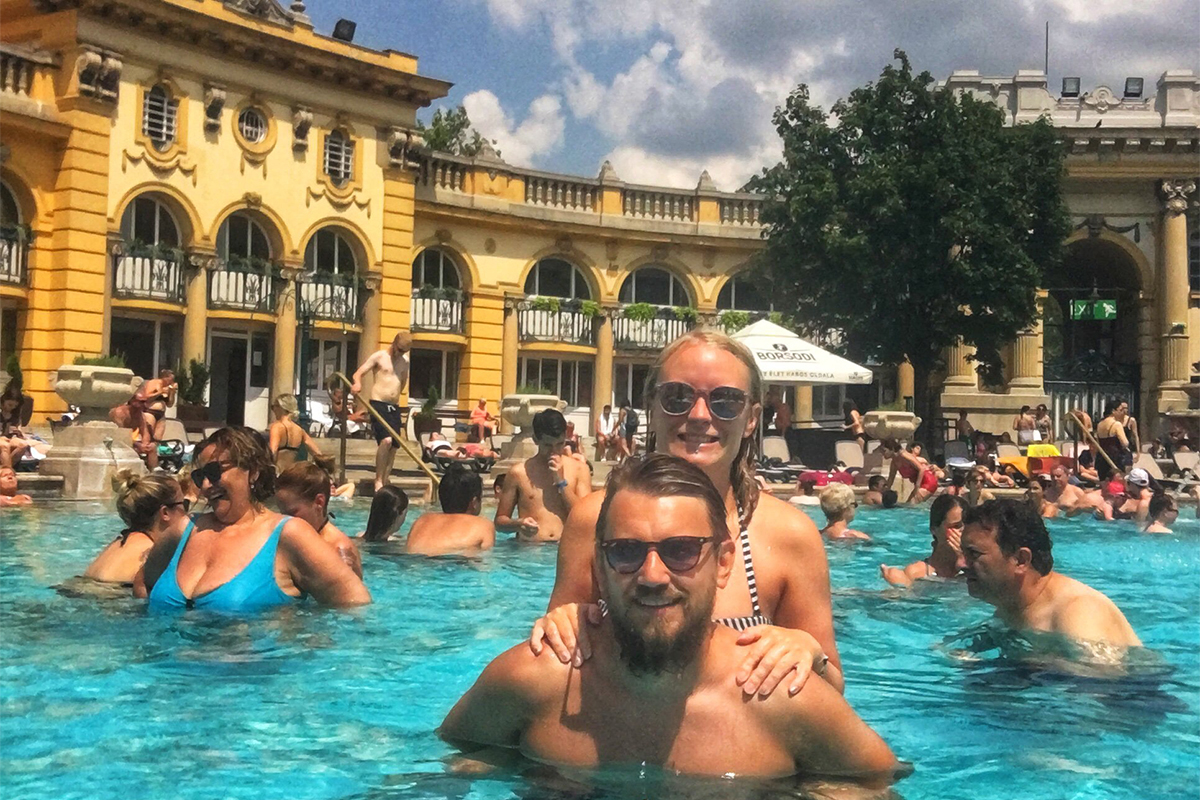
- Foreigners are only allowed to enter Hungary “in the case that it is very necessary.” Most countries have been placed in the red category, and for the limited countries that are not, strict measures apply for arrivals. Hungarians returning from overseas must self-quarantine for 14 days, or until they produce two negative COVID-19 tests taken two days apart.
- In the Ukraine, an entry ban for all foreign nationals has been restored until 28 September.
The World Health Organization (WHO) has said the COVID-19 outbreak in Africa may have passed its peak. The number of new daily confirmed cases overall has been falling for about two months, although some countries are still seeing a rise in cases.

- All international flights to and from Algeria are suspended and land borders are closed. Returning Algerian nationals must undergo quarantine for 14 days.
- Entry to Angola is prohibited except for Angolan nationals and foreign nationals resident in Angola. Air passengers must show proof of a negative PCR test from within 72 hours prior to arrival and must undergo quarantine for at least seven days, and will be released from quarantine once tested negative after the seven day period. Returning residents can quarantine in their own homes.
- Botswana has closed its borders except to essential workers, citizens and residents until further notice. Anyone permitted to enter will be tested for COVID-19 and subject to a 14-day quarantine in government facilities.
- Entry to Benin is restricted to “extreme necessities”. Limited commercial flights are operating. COVID-19 testing is mandatory for all arrivals. After the first test proves negative, a second test will be mandatory on day 14. Passengers must leave their passports with immigration police for up to 72 hours until the first test results are received.
- International flights to and from Burundi are suspended. Land borders opened to essential travel only. Eligible travellers who arrive in Burundi with proof of a negative COVID-19 test from the last 72 hours and have registered with the Ministry of Public Health and a United Nations clinic doctor, will be allowed to travel to their place of residence without mandatory quarantine. If you arrive into Burundi without proof of a negative COVID-19 test from the last 72 hours, you have two options: testing and government quarantine, or self-isolate at your place of residence after being tested.
- Most commercial flights to Cameroon are suspended, and entry is restricted. Air passengers eligible to enter must have a medical certificate with a negative COVID-19 result issued at most 72 hours before arrival. If you do not have a test prior to arrival, you will undergo a rapid test for COVID-19 at the airport. A positive result means isolating at home or in a government facility at the person’s own expense. A negative result means self-quarantine at home for 14 days.
- Limited flights are available for essential travel to and from Cape Verde, including business, family, education, or professional purposes – not tourism. Check the conditions for travel with your airline before you book a flight. Inter-island travel requires a form to be filled out prior.
- Commercial flights have restarted in the Côte d’Ivoire with limited routes. Entry is only permitted for Ivorian nationals and ECOWAS foreign nationals with residency or people with visas valid for entry. An air travel declaration form must be filled out prior to departure.
- All international flights to Comoros have been suspended until further notice. Anyone eligible to enter must have a medical certificate with a negative COVID-19 result prior to arrival. All ports of entry to the Republic of Congo are closed to non-residents.
- International flights to Eritrea are suspended until further notice. Returning residents will be required to quarantine for 21 days upon arrival.
- Borders are closed in eSwatini to non-residents, and commercial flights are suspended. Returning citizens and residents must either quarantine in government-designated facilities or self-isolate for 14 days.
- All international flights to Gabon have been suspended, and land and sea borders have closed indefinitely. Anyone permitted to enter must undergo 15 days of quarantine at a government facility.
- Land borders in Gambia are closed and commercial flights are suspended, except for repatriation, humanitarian or medevac flights. Arrivals must show a negative COVID-19 test taken no more than 72 hours before departure, and will be required to self-isolate at home/one location for 14 days. If you do not have a negative COVID-19 test, you will be quarantined in a government facility at your own cost for 14 days.
- Flights to Guinea-Bissau are suspended. Arrivals must self-isolate at one location for 14 days.
- Commercial flights to Morocco are suspended, and borders remain closed for tourism purposes. Visa-exempt foreign travellers with a confirmed hotel reservation or business travellers who have an invitation from a Moroccan company can enter (contact your local Moroccan embassy for more information). Moroccan residents and their families can enter. Eligible visitors must obtain a negative COVID-19 PCR test result and serologic test dated no more than 48 hours prior to departure. Everyone must download the tracking app ‘Wiqaytna’, and anyone showing symptoms of COVID-19 on arrival will be quarantined in dedicated facilities.
- The borders to Lesotho have closed to all but essential trade. Anyone arriving in Lesotho will be screened for coronavirus, and must self-isolate for 14 days. Anyone showing symptoms of coronavirus may be placed in an isolation facility in a government hospital. Non-essential travel is restricted, social distancing measures must be followed, and face masks must be worn in public.
- Madagascar has suspended all international flights until further notice.
- Flights to Mali are limited. Arrivals must present a negative COVID-19 test certificate less than 72 hours old, or be tested on arrival at the airport and wait in self-isolation until results are received.
- International flights in Malawi are suspended. Travellers, including Malawian nationals and residents, arriving from high-risk COVID-19 countries must undergo 14-days of self-isolation. Anyone showing symptoms will be quarantined at a government facility.
- Mauritius is closed with flights suspended until 31 October. Arrivals from high-risk COVID-19 countries are required to go into quarantine.
- Commercial flights to Niger remain suspended. Entry is only permitted for nationals, people with valid residency and foreign nationals with valid visas. Eligible visitors need to present a negative COVID-19 test certificate less than 72 hours old to airport authorities, or be tested at the airport. There are temperature checks upon arrival.
- On 1 October, three international airports and 18 land borders will reopen for inbound and outbound tourism in South Africa. Borders will only be open to travellers from countries deemed safe based on the epidemiological situation, and a list has not been released yet. Eligible travellers must show a negative test for COVID-19 that is less than 72 hours old, and will be asked to install a government contact tracing app.
- Most commercial flights in Sudan are suspended until 10 October.
- Entebbe International Airport, Uganda, will reopen from 1 October, and travellers will be required to present a medical certificate confirming a negative PCR test for COVID-19 dated within 72 hours before departure. Tour operators and local partners have been asked to make sure their travellers proceed directly to their accommodation and do not mix with Ugandans.
- Borders in Zimbabwe are closed to non-residents. Entry is prohibited except for Zimbabwean nationals and foreign nationals with a valid residency visa. From 4 September, returning residents and nationals who have a negative COVID-19 certificate valid within 48 hours of arrival are allowed to self-quarantine for 21 days. Those without a negative certificate will be sent to a quarantine facility, where they will be tested and either discharged for self-quarantine or isolation.

